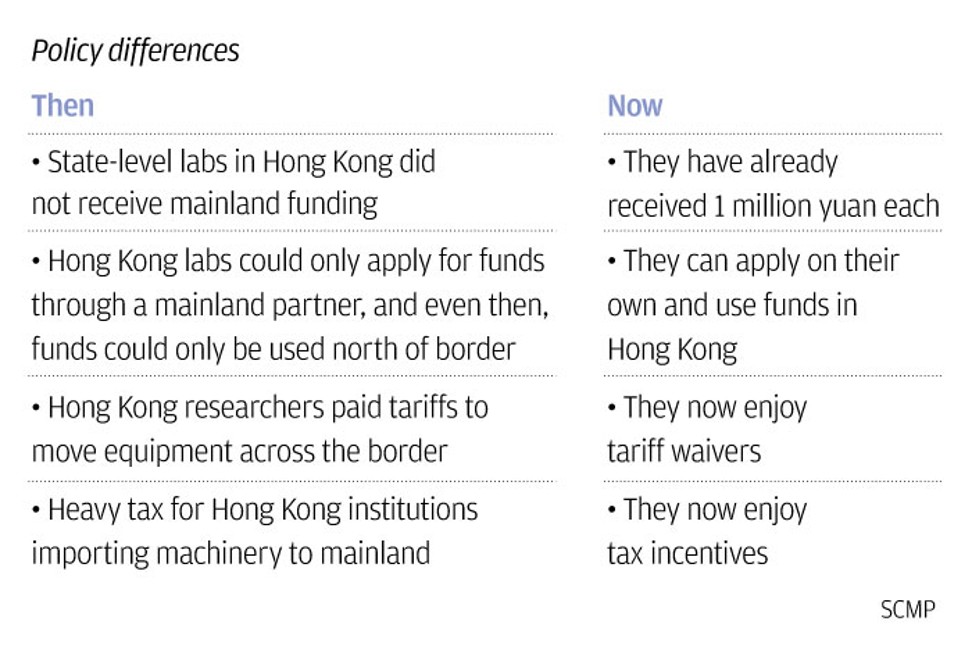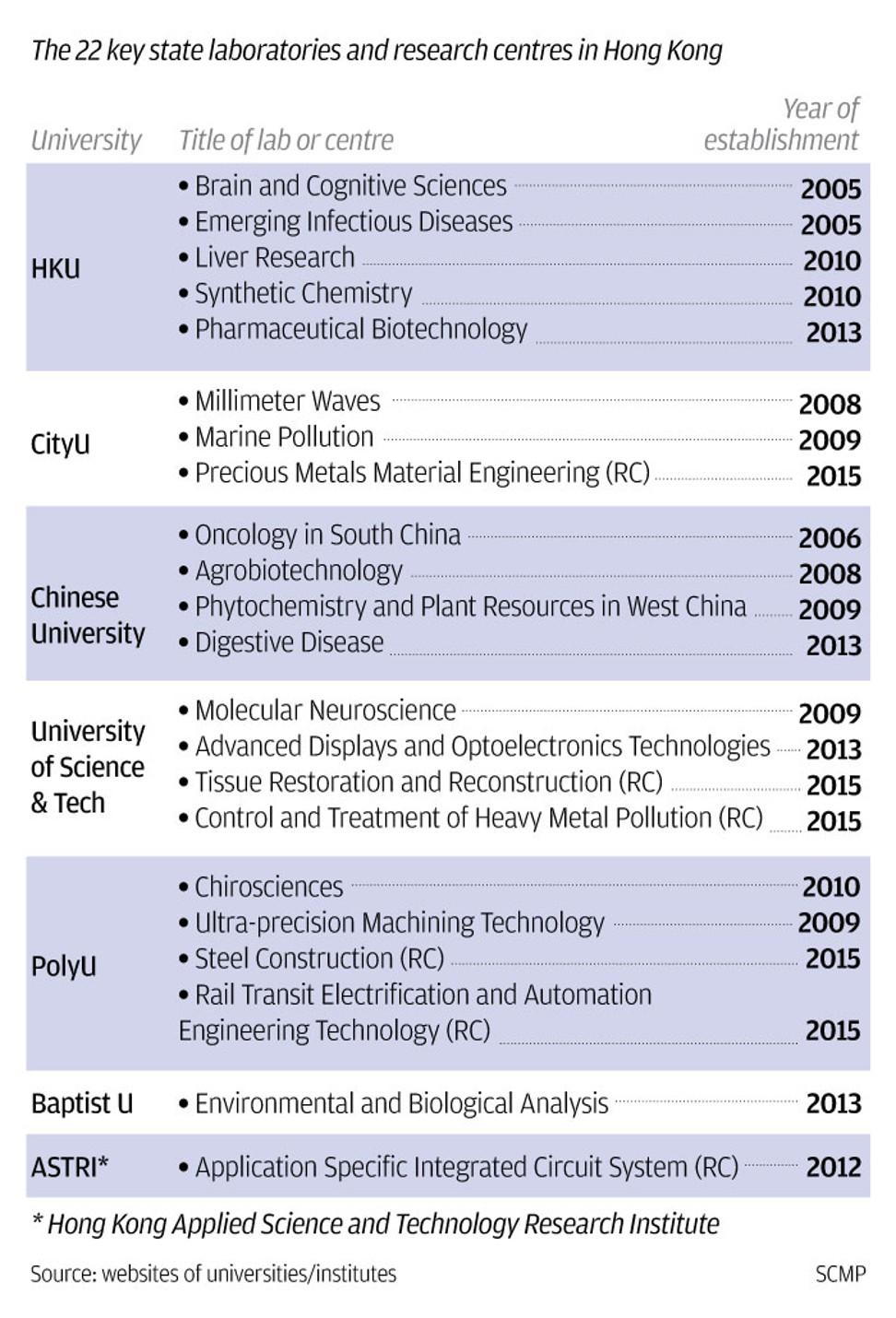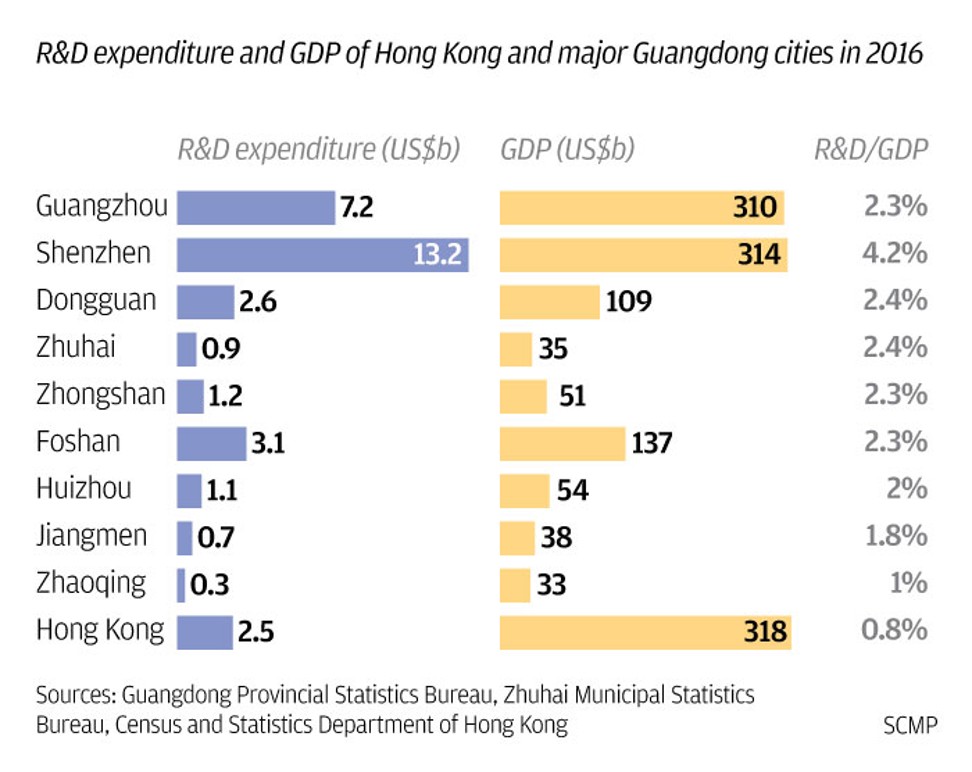
Why Hong Kong should celebrate the breakthrough in science funding from the mainland
Regina Ip says Xi Jinping’s pledge to help Hong Kong become an innovation hub will not only bring in much-needed research funding but will also enable Hong Kong scientists to participate in national research projects
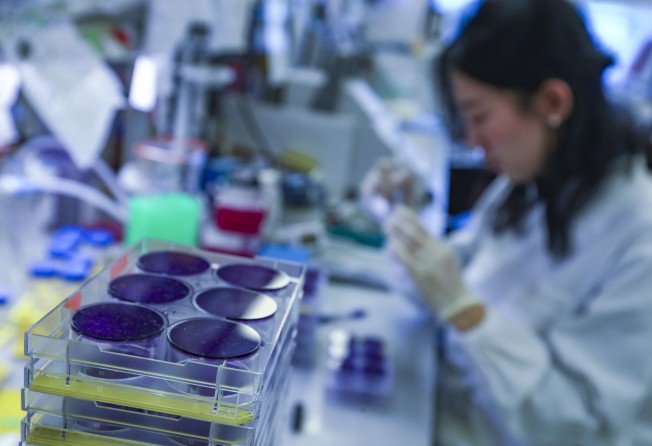
As a city which has thrived, without much government support, from trade, light manufacturing and, in more recent decades, property and finance, Hong Kong has always found it hard to wrap its mind around technology.
The colonial administration lived in blissful ignorance of the transformative power of technology. First-term chief executive Tung Chee-hwa was a strong believer, and set up a commission on innovation and technology with Professor Tian Changlin, former chancellor of the University of California, Berkeley, as chairman. The work of the commission, however, ground to a halt when Hong Kong reeled under the headwinds brought on by the Asian financial crisis and the outbreak of severe acute respiratory syndrome.
When third-term chief executive Donald Tsang Yam-kuen took over in 2007, he replaced the Commerce, Industry and Technology Bureau established by Tung in his second term with the Commerce and Economic Development Bureau. The blatant way Tsang slighted industry and technology set off a storm of protest, but to no avail.
With scant support from the government, for a long time, Hong Kong’s expenditure on research and development remained at a meagre 0.75 per cent of gross domestic product. Disillusioned academics and tech entrepreneurs left for greener pastures.
In lockstep with the nation’s hi-tech drive, fourth-term chief executive Leung Chun-ying made a renewed push to establish a dedicated Innovation and Technology Bureau, and finally succeeded in doing so in November 2015. By that time, neighbouring Shenzhen had become a world-class innovation hub. Hong Kong had been so slow in catching up that many doubted whether it could ever become a smart city.
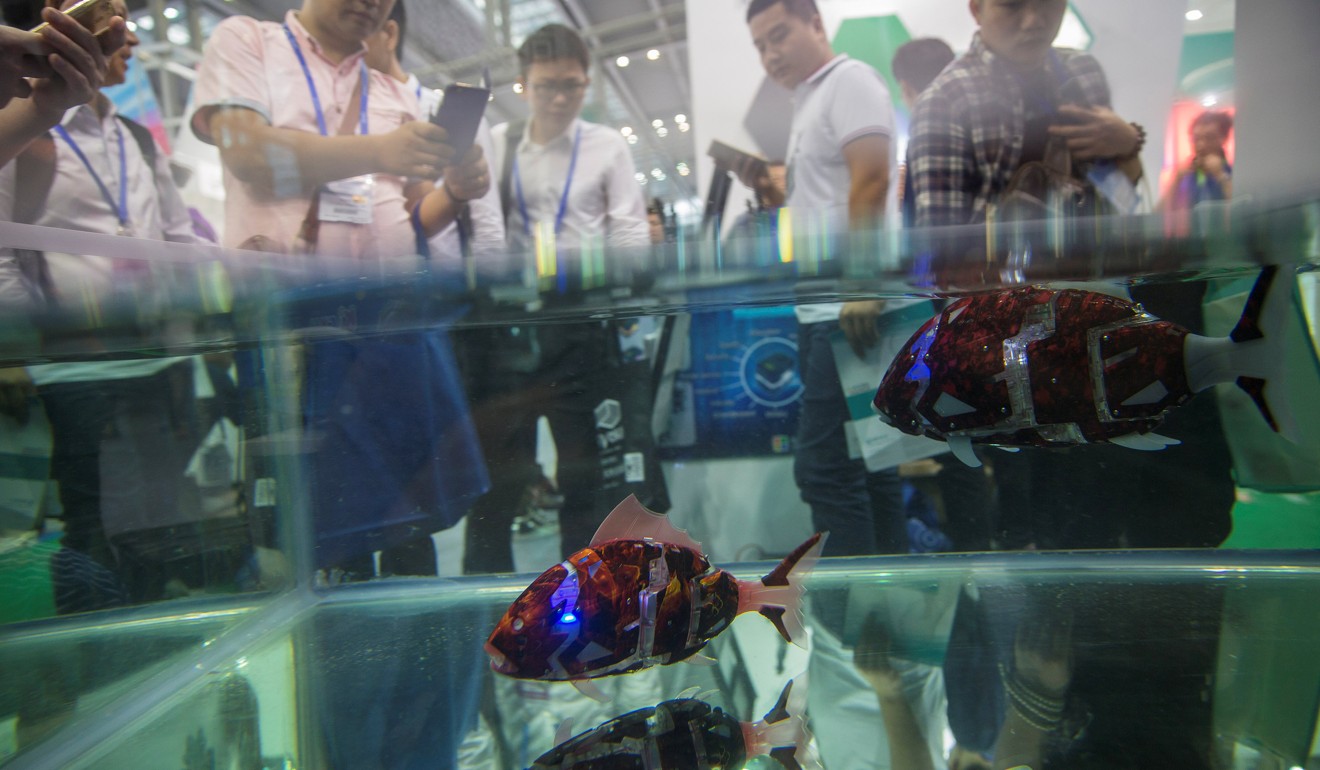
In recognition of Hong Kong’s deficiencies, since 2015, the government has launched a raft of measures as remedies – matching funds for venture capital firms to invest in start-ups, tax deductions for R&D expenditure to spur the private sector’s expenditure in this area, more funding for university research, a funding scheme for firms to encourage hiring of postdoctoral students, and funding for studentships at local universities to encourage more students to undertake research.
These measures reflect the government’s clear understanding that Hong Kong has been hampered by inadequate funding for university research, a lack of interest on the part of firms to invest in R&D or employ tech talent, and a lack of interest on the part of local students to undertake research.
Such efforts are highly laudable, but a game-changer might have been delivered by Beijing when President Xi Jinping announced various groundbreaking measures in his letter of May 16 in response to a petition from 24 Hong Kong-based fellows of the National Academy of Sciences and National Academy of Engineering.
In his reply, Xi pledged support for Hong Kong to become an “international centre of innovative technology”, lifting previous hurdles to greater cross-border collaboration by allowing Hong Kong academics to have access to national funding for R&D projects, and removed customs duties on cross-border transfer of equipment.
The significance does not lie in the amounts granted by state authorities, but in the opportunity for Hong Kong scientists to participate in national research projects
Xi’s praise for Hong Kong’s solid strength in R&D shined a light on the hidden jewels – the advanced research capabilities at our universities. Before Xi’s announcement, few Hong Kong people are aware that Hong Kong is home to around 40 members of the Chinese Academy of Sciences and Chinese Academy of Engineering, and that our universities host 16 partner laboratories of state key labs, plus six national engineering technology research centres.
As a first step, two universities – the University of Hong Kong and the Hong Kong University of Science and Technology – will receive 1 million yuan (US$155,857) each in support of their laboratories on synthetic chemistry and molecular neuroscience, both of which are partners of state key laboratories in Shanghai.
In a television interview, Professor Nancy Ip Yuk-yu, of the Hong Kong University of Science and Technology, hailed the measures as a “historical breakthrough”. The significance does not lie in the amounts granted by state authorities, but in the opportunity for Hong Kong scientists to participate in national research projects. Ip predicted that there would be synergies between the mainland and Hong Kong scientists, and outstanding international scientists would be drawn to Hong Kong.
The breakthrough does indeed remedy a long-standing problem with our system for allocating R&D funding. Being a city without national-level ambitions in science and technology, the government has been reluctant to allocate funding for high-level research projects, such as those concerning astronomy, aerospace or Antarctic research. Inter-varsity rivalry is such that it would be hard for officials, normally bureaucrats without a science background, to have the courage to grant funding for long-term research projects which do not yield immediate benefits.
The government has already pledged to double R&D funding to 1.5 per cent of GDP by 2020. With a fiscal reserve exceeding HK$1 trillion (US$127.45 billion), the government does not lack funds for R&D. But the recent funding breakthrough, facilitating cross-border collaboration in high-level research, makes up for Hong Kong’s deficits in major areas – the dearth of ambition in science and technology, the lack of farsightedness, the unwillingness to take risks, and the inadequate attention devoted to world-class scientists.
The breakthrough will not alter Hong Kong’s economic structure or enhance its economic performance any time soon. Scientific breakthrough takes time, as does the nurturing of science-based enterprises. But with greater patience, commitment and a renewed sense of derring-do, the push from Beijing could in time make a difference.
Regina Ip Lau Suk-yee is a lawmaker and chairwoman of the New People’s Party
